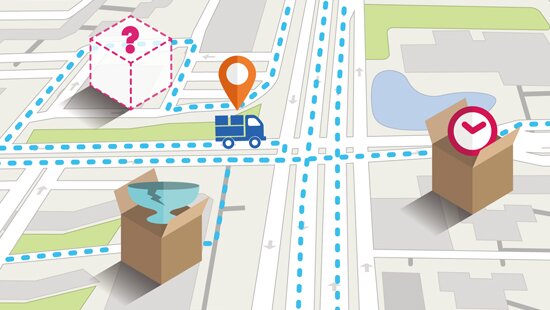The increasing popularity of online shopping in recent years has driven consumer demands for package consolidation service originating in the Mainland in bid to save courier costs.
A Consumer Council survey of nine package consolidation service providers (from Mainland to Hong Kong) in the market has unvealed significant differences in courier, storage and delivery charges as well as arrangements on compensation among service providers. Consumers are urged to review in discreet terms and conditions before purchase.
Recent years have seen an increase of consumer complaints in relation to delivery service (including package consolidation service). In 2013 and 2014, the Consumer Council has received 94 and 143 cases respectively, representing a hike of 52%. In just the first five months of this year, 53 cases were recorded, concerning mainly late or non-delivery, service quality and delivery charge.
Courier fee of package consolidation service may not be based on "actual weight" of the parcels, but "volumetric weight" based on volume of the parcel and a specific industry formula. Fees will then be calculated using the higher value between the "actual" and "volumetric" weight. In this manner, some parcels could be charged double on the basis of volumetric weight as compared to the amount based on "actual weight".
Although all the 9 surveyed companies provide compensation for losses arising from their own fault, the claimable amount differed up to three times. For instance, 4 companies calculate compensation according to the value or purchase price of goods with an upper limit from RMB 500 to RMB 2,000. The other 5 capped upper limit of compensation at three times the delivery fee, or RMB 500.
Some companies offer for damaged parcels a similar amount of compensation for losses during transit, but some recommend consumers to avoid delivering fragile goods unless they are wrapped properly. Damages of fragile items or damages due to improper wrapping will not be compensated.
7 of the surveyed providers have stated explicitly that there will be no compensation for late delivery of parcels. One would refund 50% of the delivery fee up to RMB 50 for delays that they are liable. Another would refund 30% up to the entire amount of delivery fee depending on individual cases.
Given the compensation amount is highly limited, consumers are advised to consider purchasing insurance for delivery of high value items. After the goods purchased online are delivered to the transshipment depot in the Mainland, there is usually a free storage period. The 9 surveyed providers offer free storage for a period of 5 days to 6 months. Every pending item not selected for consolidation after the free storage period will be charged for an additional amount from RMB 1 to RMB 10, or HK$5 to HK$7 on daily basis. Items being stored for more than 180 days will be discarded. Some companies will not charge storage for a maximum period of 60 days. Unclaimed items will be discarded and disposed subsequently.
Following arrival of the parcels in Hong Kong, some self-pickup centers also provide a free storage period from 2 to 7 days / working days. A daily storage fee from HK$5 to HK$20, or RMB 5 will be charged subsequently for a period no longer than two months.
Furthermore, the Council found that fees charged by the 9 surveyed companies varied substantially. For instance, service charges for the first 1kg of a self-pickup parcel could be as low as RMB 10 or as high as RMB 32, a difference by more than two times. Every additional kg could be charged between RMB 4.5 and RMB 8 (differing by 77%), or HK$8 and HK$10 (differing by 25%).
Most service providers will charge extra for couriering parcels to non-commercial districts/addresses or remote areas, however providers define such locations differently. Some also claim that if they cannot reach the recipient and deliver the parcels within certain number of days, the parcels will be returned to the specified storage center and surcharges will be imposed.
In some recent alleged fraud cases, swindler disguised as staff of courier company approached consumers via phone calls with an intention to collect sensitive personal data. The Council urges consumers not to disclose sensitive personal information easily in any case, particularly bank accounts, to avoid potential loss. In contact with staff of a courier company through phone, consumers can always request order (or shipping) number to verify the caller's identity.
Since the charging criteria of package consolidation service providers come in a wide variety, consumers are advised to make the right choice with the following tips:
- Ask for and compare calculation of courier fee, including how the weight of goods is determined. Besides, remember that different package consolidation service providers calculate the charge for additional weight quite differently. Find out whether it is calculated per 1kg or 0.5 kg, and weight short of 1kg or 0.5 will be round off to 1 kg or 0.5kg.
- Clarify whether your address for delivery requires any surcharges.
- Pay attention to the type of goods which are unacceptable for delivery, including prohibited imports specified by the Hong Kong Customs and Excise Department or exports restricted by the country of origin.
- Allow enough time for delivery and pickup to minimize risks of extra expenses.
- Request the seller to properly wrap the goods before the delivery and remember to check the received items for possible damages before signing the receipt.
The Consumer Council reserves all its right (including copyright) in respect of CHOICE magazine and Online CHOICE (https://echoice.consumer.org.hk/).




